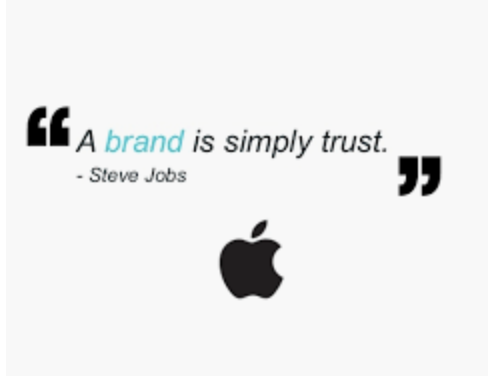 Brand Trust has become a “big deal” for marketers in 2019.
Brand Trust has become a “big deal” for marketers in 2019.
While some define brand trust as building trust with your customers and consumers, not everyone agrees.
A recent article in Adweek called Consumer’s Trust in Brands Has Fallen to a New Low highlights the confusion that often arises when “talking trust” from a brand standpoint, or any point for that matter. This particular article ran the “building trust gamut” from:
- Elevating trust with consumers
- Through data privacy
- Relationship building
- To increasing transparency
- Meeting the needs of millennials and Get Z
- And even being good corporate citizens.
I don’t know about you, but for me that’s a pretty tall and confusing trust order.
So I asked the members of our Trust Council to read the article and share their professional observations about what brand trust is and what it isn’t. Here’s what five members had to say:
Bart Alexander, a seasoned CSR professional opined that most consumers, including young adults, are still choosing products and services based on functional attributes more than responsibility performance of the parent company. Similarly, most investors still seek to maximize total return rather than focus on long-term sustainability performance. But we may well be on the cusp of a tipping point where the approaches referenced in the article become mainstream. At the same time, we must acknowledge that most of the economy is continuing to operate on far more traditional views about value.
Nadine Hack, a leadership consultant and educator, concurs. All of this activity makes me wonder (hopefully, yet cautiously) if we may have finally reached a tipping point where corporate social responsibility is something businesses must act on, not just talk about.
Randy Conley at Ken Blanchard adds that in the digital world, organizations are having to constantly make deposits in the “trust bank” of their customers, because sooner or later, there will be an instance where trust is broken. It’s not a question of if they’ll break trust, but when. The vast majority of consumers are starting to realize that we only live under the illusion of privacy and data security. At the end of the day, each of us as consumers has to decide our own comfort level of risk in sharing our information with others and trusting those individuals/organizations to keep it safe.
Linda Fisher Thornton, an ethics educator and consultant had this to say… Reputation and brand used to be considered separate things. You built your brand (what you wanted people to believe about your company) and you sought to protect the image of your brand that you had built. That approach is outdated. With social media transparency, reputation and brand have converged to the point that reputation defines and shapes the brand. People believe what they see a company doing rather than any pretty picture it has created to represent itself.The way to build trust is not to pretend to be a trustworthy brand, but to actually live it.
“The Trust Ambassador” Bob Whipple concluded with these thoughts…The thing I was reminded of is that we all need to be cognizant of the reputation of our own brands and the jeopardy we could put people in unwittingly. The real test is how diligent the company is on the front end to design a robust system and how the company reacts if and when something goes wrong. That is the test of their leadership.
Which brings us back to the question in the title of the article. What does Brand Trust mean?
I suppose it depends on one’s personal and professional perspective. If you are a marketer in 2019, apparently it’s a big deal, not unlike “purpose,” another big deal. Sadly, many of these are merely PR “campaigns” designed by those who have no subject matter expertise. The result is not only less trust, but more cynicism and confusion for both customers and consumers.
Marketers who choose to talk about brand trust, should consider shifting their focus to helping build trustworthy and enduring brands. That’s not accomplished through data security or meeting the needs of a certain generation, and it’s certainly not the sole responsibility of the marketing department. The way trustworthy brands are built is similar to the way people build trust between themselves. It always boils down to principles and values, and either leaders, teams and organizations have them or they don’t. If brands want to be trustworthy and trusted, it’s leadership’s responsibility, along with their Board, to first clean up their own house from the inside out. Building a foundation of trust via principled leadership and trustworthy employees is the only solution to elevating brand trust. And then the marketing team can step in and craft an authentic message, not just a PR campaign.
As Bob Whipple said earlier, the real test is how diligent the company is on the front end.
Barbara Brooks Kimmel is the CEO of Trust Across America-Trust Around the World whose mission is to help organizations build trust. For more information on how to build authentic brand trust, contact her at barbara@trustacrossamerica.com
Copyright 2019, Next Decade, Inc.





Recent Comments